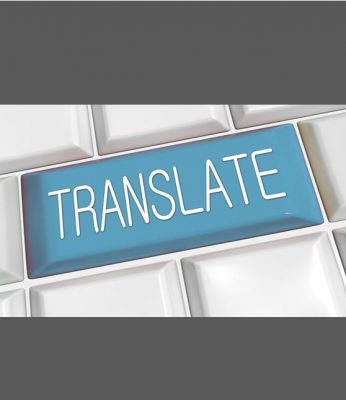
Though professional translation and interpreting services are two different services, they are closely linked, and people often use those terms interchangeably.
However, the most common similarity between both services is that both translation and interpretation deal with languages. It is scarce to find an individual who can do both professionally.
Translators relays written word while certified interpreters deal with spoken words in real-time. Therefore translators and interpreters are fundamentally different from each other.
If you still cannot differentiate both, this article is for you. We have listed 4 critical differences between translation services and interpreting services. You should read about them carefully before deciding on hiring one.
Interpreters Deal With Spoken Content
An interpreter can interpret the meaning of a spoken language to a different language in real-time, which is usually done using simultaneous translation equipment for the purpose of not interrupting the speaker and the listener. A translator translates a written version of the content. Therefore, an interpreter needs to be more spontaneous and have a better hold of vocabulary than a translator. Also, an interpreter has to have communication access, as he has to orally convey the information to the speaker.
Plus, the interpreter doesn’t get to refer to any dictionary or encyclopedia during any time in the quality interpreting services.
Interpretation Is Done Immediately
A translator can use professional translation software and refers to different books and dictionaries to meticulously translate the information written on papers. Additionally, translators get enough time to upgrade their knowledge while researching and understanding the target language’s culture.
On the other hand, interpretation is done in real-time, the interpreter must be well equipped with enough knowledge about both languages’ cultures and linguistic nuances.
An Interpreter Must Be Fluent In Both Languages
Translators typically are native speakers of the target language. And as they don’t translate in real-time, they can tap into a great wealth of vocabulary during the translation process. On the other hand, an interpreter must be fluent in both languages as they often translate in both ways.
Interpretation Demands More Accuracy
An interpreter relays information in real-time without changing the structure of the sentence and without harming the meaning. Therefore, there is a massive chance of grammatical errors during an interpretation if you don’t hire professional interpreting services.
Many people think that spoken communication does not require the same grammatical accuracy as written communication. But the principle of grammatically correct communication is applicable everywhere.
As an interpreter instantly translates phrases and idioms between two languages, they must be fluent enough to keep inaccuracy at bay. However, it is said that translation tends to be more accurate than interpretation. Still, you can expect the best interpretation service with grammatical accuracy by investing in professional interpreting services.
Interesting Related Article: “Benefits of Professional Translation Services for Businesses”

